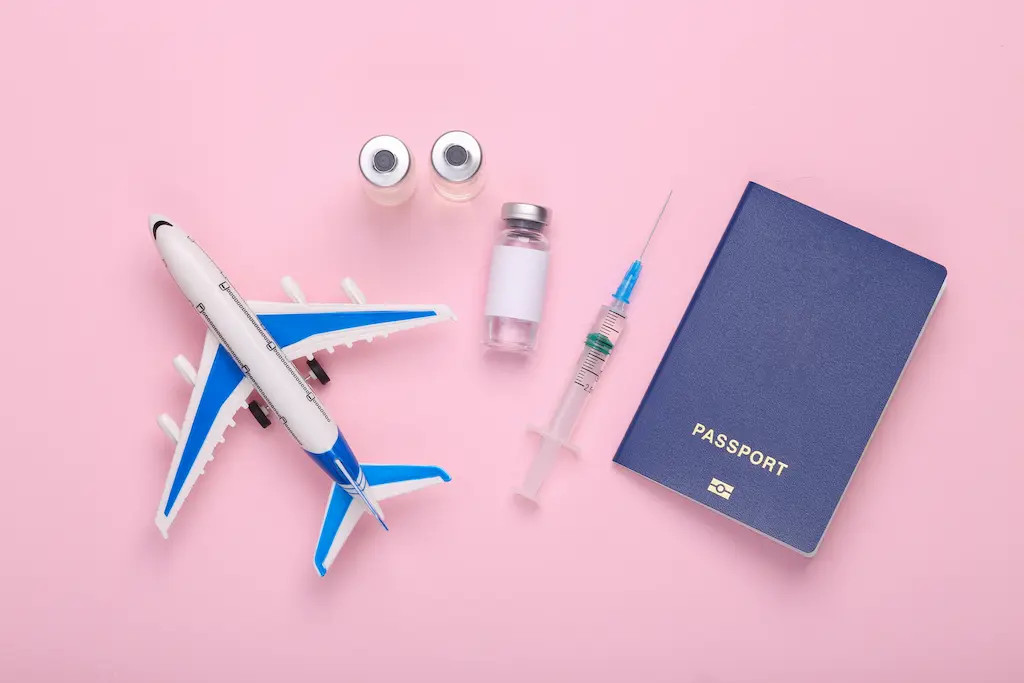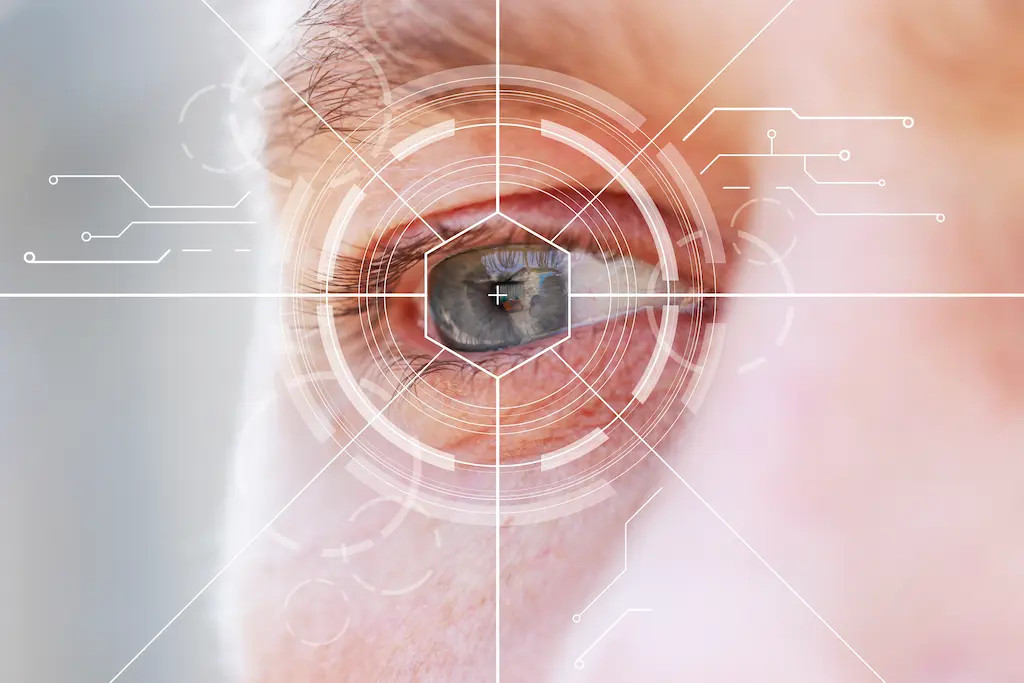 Concerned Woman Asking About Flying After Cataract Surgery
Concerned Woman Asking About Flying After Cataract Surgery
Cataract surgery is a life-changing procedure that restores vision and enhances quality of life for millions annually. If you’re planning to undergo cataract surgery and have upcoming travel plans, you might be wondering, “Can One Fly After Cataract Surgery?” The short answer is generally yes, flying after cataract surgery is safe for most individuals. However, there are important considerations to ensure your journey is comfortable and your recovery remains on track.
This comprehensive guide will walk you through everything you need to know about flying after cataract surgery, empowering you to make informed decisions and travel with confidence.
Understanding Air Travel Post-Cataract Surgery
Good news for travel enthusiasts! Undergoing cataract surgery doesn’t automatically ground your flight plans. In most cases, routine air travel poses no significant risk after either traditional or laser-assisted cataract surgery. There are typically no strict medical restrictions preventing you from flying after this common procedure.
It’s crucial to note an exception: individuals who have had detached retina surgery involving the injection of a gas bubble into the eye. This is a different procedure from cataract surgery. If a gas bubble was used, air travel is restricted. Changes in cabin pressure during a flight can cause the gas bubble to expand, potentially leading to serious complications. Patients must wait until their ophthalmologist confirms the gas bubble has fully dissipated before flying.
While flying is generally permitted, it’s wise to be aware of potential minor discomforts and take necessary precautions to ensure a smooth and healthy recovery.
Potential Post-Surgery Eye Sensations During Air Travel
Like any surgical procedure, cataract surgery requires a period of healing. While the recovery is generally swift, some temporary side effects can be exacerbated by air travel conditions.
Addressing Dry Eyes in the Dry Cabin Air
One of the most common post-cataract surgery experiences is dry eyes. Several factors contribute to this:
- Antiseptics and Preservatives: Betadine, an antiseptic used to sterilize the eye area before surgery, and preservatives in post-operative eye drops can both contribute to eye dryness and irritation.
- Reduced Tear Production: The surgical process itself can temporarily decrease tear production in some individuals.
- Eyelid Closure and Ocular Surface Disruption: Surgery can sometimes affect eyelid closure or disrupt the delicate ocular surface, leading to dryness.
Dry eyes can manifest as burning, aching, a gritty sensation (feeling like something is in your eye), and fluctuating or blurry vision. These symptoms can increase the urge to rub your eyes, which elevates the risk of infection during the crucial healing phase.
Airplane cabins are notoriously dry environments. The humidity levels in airplanes at cruising altitude are extremely low, often less than 1%. This dry air intensifies dehydration of both skin and eyes. Coupled with the disruption to normal routines during travel – potentially leading to less water intake, less sleep, and less healthy food choices – dry eye symptoms can become more pronounced during and after a flight.
To mitigate dry eye discomfort while flying, proactive steps are essential. Using artificial tears is highly recommended, and preservative-free options are particularly gentle and can be used more frequently, even hourly, if needed. Consulting your eye doctor about dry eye therapies before your trip can also be beneficial if you are prone to dry eyes.
The Importance of Post-Operative Care Continuity
Following your ophthalmologist’s post-operative instructions diligently is paramount for successful cataract surgery recovery, especially if you plan to travel soon after. Typically, post-operative appointments are scheduled for the day after surgery and again within the following two weeks. These check-ups are vital for monitoring healing progress and promptly identifying any potential complications.
If travel is on your horizon shortly after surgery, informing your surgeon about your plans is crucial. Work collaboratively to schedule your follow-up appointments around your travel dates whenever possible. Adhering to all post-operative guidelines, including consistent use of prescribed eye drops and wearing a protective sleep mask at night, remains essential while traveling. If you have any concerns or questions about specific activities or travel plans in the immediate post-operative period, always seek clarification and advice from your surgeon.
Travel Insurance and Cataract Surgery Considerations
Generally, cataract surgery itself does not negatively impact travel insurance coverage. However, it’s always prudent to review your specific travel insurance policy or contact your provider to confirm. Some policies might have clauses regarding pre-existing conditions or require a certain waiting period after surgery before full coverage applies. Additionally, some policies may have exclusions related to medical expenses arising directly from the surgery. Understanding your policy details ensures you are adequately covered for any unforeseen medical needs while traveling.
Accessibility to Medical Care During Recovery
 Doctor Checking Patient Eye After Cataract Surgery
Doctor Checking Patient Eye After Cataract Surgery
While most individuals feel significantly better within 24 hours of cataract surgery, with vision largely stabilized, light sensitivity can persist for a few days. The full cataract surgery recovery period typically spans four to six weeks. During this time, maintaining eye hygiene and lubrication is critical to facilitate healing and minimize infection risk. It’s advisable to limit strenuous activities and allow ample rest for optimal recovery.
Although infections after cataract surgery are rare, symptoms like worsening vision, increased redness, or pain in the operated eye should never be ignored. Prompt medical attention is essential for any suspected infection, as delays in treatment can potentially lead to permanent vision loss.
In the unlikely event of an infection or other post-operative concern while traveling, access to quality medical care is paramount. Seeking professional ophthalmology care is crucial and generally readily available in well-developed urban areas. During the initial recovery phase after cataract surgery, it’s wise to avoid travel to remote locations with limited access to medical facilities or reliable communication.
Practical Tips for Comfortable Flying After Cataract Surgery
When discussing your travel plans with your eye surgeon, keep these helpful guidelines in mind:
- Understand Expected Symptoms: Ask your doctor to detail what to expect during recovery, enabling you to differentiate between normal post-operative sensations and potential signs of complications.
- Consider Initial Home Rest: Plan to stay close to home for the first few days, or longer if your doctor recommends, allowing for immediate follow-up if any unexpected issues arise.
- Attend All Follow-Up Appointments: Prioritize and attend all scheduled post-operative appointments to ensure your surgeon can monitor your healing and confirm you are recovering as expected.
To specifically combat dry eye discomfort during flights after cataract surgery, the most effective strategy is the frequent use of preservative-free artificial tears.
In addition to artificial tears, consider these supplementary tips for a more comfortable flight:
- Prioritize Naps: If you can sleep on airplanes, take advantage of the opportunity! Resting your eyes during the flight minimizes dryness.
- Stay Hydrated: Drink plenty of water throughout your journey. Carry an empty water bottle to fill at the airport after security to ensure easy access to hydration during your flight.
- Adjust Air Vents: Close or adjust the overhead air vent to direct airflow away from your face and eyes, reducing direct exposure to dry, circulating cabin air.
Need Expert Cataract Surgery Advice?
Flying after cataract surgery is generally safe, allowing you to maintain your travel plans. Prioritizing appropriate post-operative eye care and taking simple precautions during your flight will contribute significantly to a comfortable journey and a smooth recovery. Ensure you have access to medical care if needed and address potential dry eye proactively.
Do you want to learn more about cataract surgery and determine if it’s right for you? Schedule a consultation online with the experienced cataract specialists at Discover Vision Centers in Kansas City. Our team is dedicated to guiding you through vision correction options and helping you restore clear vision and enhance your quality of life.